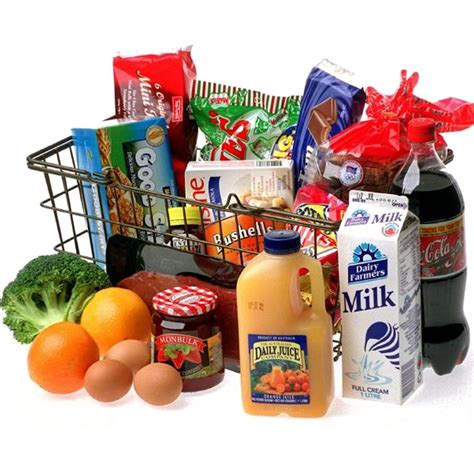
Aldi’s June product lineup features a range of new and returning grocery items, including convenient meal solutions, snacks, and seasonal treats, designed to cater to summer gatherings and everyday needs. The release includes the Park Street Deli Hawaiian or Dill Pickle Chopped Salad Kit, Specially Selected Verrines Dessert Cups, Sundae Shoppe Fruit Pops, and Bake Shop Glazed Donuts, among other items.
Aldi’s latest product drop for June offers shoppers a diverse selection of groceries intended to enhance summer meals and provide quick, easy options for busy schedules. The German-based retailer is introducing both new and returning favorites, focusing on convenience and seasonal flavors.
Among the highlighted items are the Park Street Deli Hawaiian or Dill Pickle Chopped Salad Kit, catering to those seeking lighter meal options. The salads are available for a limited time, with Aldi emphasizing their grab-and-go convenience. Each kit features a blend of fresh vegetables and flavorful dressings.
For dessert, Aldi is featuring Specially Selected Verrines Dessert Cups, providing individual servings of layered desserts. These dessert cups are available in different flavors, catering to various preferences. Alongside these, the Sundae Shoppe Fruit Pops are returning, offering a refreshing treat for warmer weather. Available in assorted fruit flavors, these pops provide a lighter alternative to traditional ice cream.
The bakery section also sees new additions, including Bake Shop Glazed Donuts. These donuts offer a classic sweet treat, suitable for breakfast or dessert. Aldi also offers a range of other grocery items, including snacks, beverages, and ingredients for meal preparation, rounding out their product selection for the month. The retailer is known for its competitive pricing, aiming to provide affordable options for consumers.
The strategic product release aligns with consumer trends favoring convenience and seasonal eating, as Aldi seeks to maintain its position as a budget-friendly grocery destination.
Detailed Look at Aldi’s June Product Releases
Aldi’s June product release aims to capitalize on the summer season by offering a variety of items that cater to outdoor gatherings, quick meal solutions, and seasonal cravings. This approach aligns with Aldi’s broader strategy of providing value and convenience to its customers.
Park Street Deli Chopped Salad Kits
The Park Street Deli Hawaiian or Dill Pickle Chopped Salad Kits stand out as convenient meal options for individuals and families alike. These kits are designed to be ready-to-eat, requiring minimal preparation.
The Hawaiian Chopped Salad Kit typically includes ingredients such as lettuce, grilled chicken, pineapple, red bell pepper, and a sweet Hawaiian dressing. This combination creates a sweet and savory flavor profile, appealing to a broad range of palates. The Dill Pickle Chopped Salad Kit offers a tangy alternative, incorporating ingredients such as lettuce, dill pickles, crispy fried onions, and a creamy dill dressing.
These salad kits cater to the growing demand for quick and healthy meal options, saving consumers time and effort in meal preparation. The grab-and-go format makes them suitable for lunch at work, picnics, or a light dinner.
Specially Selected Verrines Dessert Cups
Aldi’s Specially Selected Verrines Dessert Cups provide an elegant and convenient dessert option. These individual servings feature layers of different textures and flavors, creating a sophisticated dessert experience without the need for extensive baking or preparation.
Verrines, a French term for layered desserts served in glasses, have gained popularity due to their visual appeal and portion control. Aldi’s Verrines Dessert Cups come in various flavors, such as chocolate mousse, caramel, and fruit compotes. The layers might include a creamy base, a crunchy element, and a topping, providing a multi-sensory experience.
These dessert cups are ideal for entertaining guests or enjoying a single-serving treat. The packaging is designed for easy handling and serving, making them a convenient option for busy hosts.
Sundae Shoppe Fruit Pops
Returning to Aldi’s shelves are the Sundae Shoppe Fruit Pops, offering a refreshing and guilt-free treat for the summer months. These pops are made with real fruit and come in assorted flavors such as strawberry, mango, and pineapple.
Fruit pops offer a lighter alternative to traditional ice cream, appealing to health-conscious consumers. They are typically lower in calories and fat, making them a suitable option for those watching their intake. The Sundae Shoppe Fruit Pops provide a cooling and hydrating treat, perfect for hot summer days.
These pops are also popular among parents looking for a healthier snack option for their children. The natural fruit flavors and absence of artificial additives make them a preferable choice over sugary alternatives.
Bake Shop Glazed Donuts
For those craving a classic sweet treat, Aldi offers Bake Shop Glazed Donuts. These donuts provide a familiar and comforting option for breakfast or dessert.
Glazed donuts are a staple in bakeries and coffee shops, known for their soft texture and sweet glaze. Aldi’s Bake Shop Glazed Donuts are made with a traditional recipe, ensuring a consistent and satisfying taste. These donuts are ideal for pairing with coffee or milk, providing a quick and easy way to satisfy a sweet tooth.
The affordability of these donuts makes them an attractive option for families and individuals on a budget. They can be enjoyed as a weekend treat or a convenient snack throughout the week.
Other Notable Grocery Items
In addition to the featured items, Aldi’s June product release includes a variety of other grocery items designed to meet diverse consumer needs. These items span different categories, including snacks, beverages, and ingredients for meal preparation.
Snacks might include a range of chips, pretzels, and crackers, providing options for both sweet and savory cravings. Beverages could feature seasonal drinks such as flavored iced teas, lemonades, and sparkling water. Ingredients for meal preparation could include fresh produce, meats, and pantry staples, enabling consumers to create a variety of dishes.
Aldi’s Strategic Approach
Aldi’s approach to product releases is strategic, focusing on affordability, convenience, and seasonal relevance. The retailer aims to offer high-quality products at competitive prices, attracting budget-conscious consumers.
The emphasis on convenience is evident in the ready-to-eat salad kits and individual dessert cups, catering to busy individuals and families. The seasonal relevance is reflected in the fruit pops and other summer-themed items, aligning with consumer preferences during warmer months.
Aldi’s product releases also serve as a way to introduce new and innovative items to its customers. By offering a mix of familiar favorites and unique offerings, Aldi keeps its product selection fresh and engaging.
Consumer Impact and Market Trends
Aldi’s product releases have a significant impact on consumers, providing affordable access to a variety of grocery items. The retailer’s competitive pricing often undercuts that of traditional supermarkets, saving consumers money on their grocery bills.
The emphasis on convenience aligns with broader market trends, as consumers increasingly seek out quick and easy meal solutions. The demand for ready-to-eat salads, pre-portioned desserts, and other convenience items has been growing steadily in recent years.
The focus on seasonal flavors and ingredients also reflects consumer preferences for fresh and locally sourced products. Consumers are increasingly interested in eating seasonally, seeking out produce and ingredients that are at their peak during specific times of the year.
Aldi’s Growth and Expansion
Aldi’s success can be attributed to its efficient business model, which focuses on streamlining operations and minimizing overhead costs. This allows the retailer to offer lower prices without compromising on quality.
Aldi has been expanding its presence in the United States, opening new stores and renovating existing ones. The retailer’s growth is driven by its ability to attract and retain customers through its value proposition and product selection.
Aldi’s expansion plans include increasing its footprint in both urban and suburban areas, making its products more accessible to a wider range of consumers. The retailer also invests in technology and infrastructure to improve its supply chain and enhance the customer experience.
Sustainability Initiatives
Aldi has been implementing sustainability initiatives to reduce its environmental impact. These initiatives include reducing waste, conserving energy, and sourcing products responsibly.
Aldi has set targets for reducing greenhouse gas emissions and increasing the use of renewable energy. The retailer also works with its suppliers to promote sustainable farming practices and reduce the use of pesticides and fertilizers.
Aldi’s sustainability initiatives are aligned with growing consumer demand for environmentally friendly products and practices. Consumers are increasingly seeking out brands that are committed to sustainability and social responsibility.
Competitive Landscape
Aldi operates in a highly competitive grocery market, facing competition from traditional supermarkets, discount retailers, and online grocery services. To differentiate itself, Aldi focuses on offering a unique value proposition based on low prices, high-quality products, and a streamlined shopping experience.
Aldi’s competitive advantage lies in its ability to offer prices that are significantly lower than those of its competitors. This is achieved through efficient operations, private-label brands, and a focus on limited assortment.
Aldi also competes on convenience, offering quick and easy shopping experiences. The retailer’s smaller store format and streamlined layout make it easy for customers to find what they need and get in and out quickly.
Future Outlook
Aldi is well-positioned for continued growth in the grocery market. The retailer’s value proposition resonates with consumers who are looking for affordable and convenient grocery options.
Aldi’s expansion plans and sustainability initiatives will further strengthen its position in the market. The retailer is committed to investing in its business and adapting to changing consumer preferences.
Aldi’s future success will depend on its ability to maintain its competitive advantage, innovate its product selection, and provide a positive shopping experience for its customers.
The impact of the “Aldi Effect”
The “Aldi Effect” refers to the phenomenon where other grocery retailers lower their prices to compete with Aldi’s consistently low prices. This effect has been observed in markets where Aldi has a strong presence, benefiting consumers with lower grocery costs across the board. Aldi’s strategy of offering primarily private-label brands and maintaining a streamlined store layout allows them to offer products at significantly lower prices than traditional supermarkets. This competitive pressure forces other retailers to re-evaluate their pricing strategies to remain competitive. As Aldi continues to expand its footprint, the “Aldi Effect” is likely to become more widespread, potentially reshaping the grocery landscape and benefiting consumers with greater affordability.
Aldi’s private label strategy and its impact on quality perception
Aldi’s business model heavily relies on offering a majority of products under its own private labels, such as “Specially Selected,” “Park Street Deli,” and “Sundae Shoppe.” This strategy allows Aldi to control the quality and pricing of its products, cutting out the middleman and passing the savings on to consumers. While some shoppers may initially be hesitant to purchase private-label products due to concerns about quality, Aldi has worked to build a reputation for offering high-quality items comparable to national brands. Blind taste tests and consumer reviews often support the assertion that Aldi’s private-label products are comparable, and sometimes even superior, to their name-brand counterparts. This has helped Aldi overcome the perception that private-label brands are inherently inferior, allowing them to gain a loyal customer base that trusts the quality and value of their own brands.
Aldi’s impact on local communities and economies
Aldi’s entry into a new market can have a significant impact on local communities and economies. The opening of an Aldi store creates new jobs, both in-store and in the supply chain. Additionally, Aldi’s presence can stimulate competition among grocery retailers, leading to lower prices and increased value for consumers. Aldi also often partners with local organizations and charities, contributing to community development initiatives. However, the “Aldi Effect” can also pose challenges for smaller, independent grocery stores, which may struggle to compete with Aldi’s low prices. Overall, Aldi’s impact on local communities is complex and multifaceted, with both positive and negative consequences.
Examining the demographic profile of Aldi shoppers and their purchasing habits
Aldi’s target demographic has evolved over time. Initially known for attracting budget-conscious shoppers, Aldi has broadened its appeal to a wider range of consumers, including millennials, families, and those seeking organic and gluten-free options. Aldi shoppers are typically drawn to the store’s low prices, convenient store layout, and unique product selection. Their purchasing habits often reflect a focus on value and efficiency, with shoppers stocking up on staples and private-label items to save money. However, Aldi shoppers are also increasingly interested in premium and specialty products, as evidenced by the popularity of the “Specially Selected” line. Aldi has successfully adapted its product offerings to cater to the evolving needs and preferences of its diverse customer base.
A comparison of Aldi’s business model with other discount grocery retailers
Aldi operates in the discount grocery retail sector, which includes other players such as Lidl and Grocery Outlet. While these retailers share the common goal of offering low prices, their business models differ in several key aspects. Aldi focuses on a limited assortment of private-label products, efficient store operations, and minimal frills. Lidl, another German discount retailer, offers a slightly wider assortment of products, including both private-label and name-brand items. Grocery Outlet, on the other hand, specializes in selling surplus and discounted products from other retailers and manufacturers. Each of these retailers has carved out a unique niche in the discount grocery market, appealing to different segments of the consumer population. Aldi’s emphasis on private-label products and operational efficiency has allowed it to maintain its position as a leading discount grocery retailer.
The Role of Seasonal Products in Aldi’s Strategy
Aldi strategically utilizes seasonal products to drive traffic and create a sense of excitement among shoppers. The June product drop, as highlighted in the article, is a prime example of this strategy. By offering limited-time items that align with the summer season, such as fruit pops and seasonal salad kits, Aldi encourages shoppers to visit stores regularly to discover new and unique products. This approach not only boosts sales but also enhances the overall shopping experience, making Aldi a destination for seasonal treats and special occasions. The limited availability of these items also creates a sense of urgency, prompting shoppers to make purchases before they are gone.
The Significance of Private Label Brands for Aldi’s Profitability
Private label brands are the cornerstone of Aldi’s business model and a key driver of its profitability. By primarily offering its own brands, Aldi eliminates the costs associated with marketing and advertising national brands. This allows Aldi to offer products at significantly lower prices while maintaining healthy profit margins. Private label brands also give Aldi greater control over product quality and sourcing, ensuring consistent standards and meeting the specific needs of its target customers. The success of Aldi’s private label strategy has demonstrated that consumers are increasingly willing to switch from national brands to private label alternatives, especially when they offer comparable quality at a lower price point.
Analyzing Aldi’s Supply Chain Efficiency
Aldi’s ability to offer low prices is heavily reliant on its efficient supply chain management. The company employs a streamlined approach, working directly with suppliers and minimizing intermediaries. This allows Aldi to reduce transportation costs, storage expenses, and other supply chain inefficiencies. Aldi also utilizes standardized packaging and efficient store layouts to further optimize its operations. By focusing on simplicity and efficiency, Aldi has created a supply chain that is highly responsive to consumer demand while keeping costs to a minimum. This competitive advantage enables Aldi to offer unparalleled value to its customers.
The Impact of Technology on Aldi’s Operations
Technology plays an increasingly important role in Aldi’s operations, enhancing efficiency and improving the customer experience. Aldi utilizes data analytics to optimize product assortment, pricing, and inventory management. The company has also invested in self-checkout lanes and mobile payment options to reduce wait times and streamline the checkout process. Additionally, Aldi is exploring the use of robotics and automation to further improve its supply chain and in-store operations. By embracing technology, Aldi is able to adapt to changing consumer preferences and maintain its competitive edge in the rapidly evolving grocery retail landscape.
Addressing Common Misconceptions About Aldi’s Product Quality
Despite Aldi’s success, some consumers still harbor misconceptions about the quality of its products, often associating low prices with inferior quality. However, Aldi’s private label products undergo rigorous testing and quality control measures to ensure they meet or exceed industry standards. The company also partners with reputable suppliers and manufacturers to source its products. Blind taste tests and consumer reviews consistently demonstrate that Aldi’s products are comparable to or even superior to national brands in terms of taste and quality. By focusing on value and transparency, Aldi has worked to dispel these misconceptions and build trust with its customers.
FAQ: Aldi’s June Product Drop
-
What are the key highlights of Aldi’s June product drop?
- Aldi’s June product lineup features a range of new and returning grocery items, including the Park Street Deli Hawaiian or Dill Pickle Chopped Salad Kit, Specially Selected Verrines Dessert Cups, Sundae Shoppe Fruit Pops, and Bake Shop Glazed Donuts, among other items catering to summer gatherings and everyday needs.
-
Are the Park Street Deli Chopped Salad Kits available permanently?
- No, these salad kits are available for a limited time. Aldi emphasizes their grab-and-go convenience, making them suitable for quick lunches or light dinners.
-
What makes the Specially Selected Verrines Dessert Cups a unique offering?
- These dessert cups provide individual servings of layered desserts, offering a sophisticated dessert experience without extensive preparation. They come in various flavors and feature layers of different textures.
-
Are the Sundae Shoppe Fruit Pops a new product?
- No, the Sundae Shoppe Fruit Pops are returning to Aldi’s shelves, offering a refreshing and guilt-free treat for the summer months. They are made with real fruit and come in assorted flavors.
-
How does Aldi ensure the quality of its private-label products, like those in the June drop?
- Aldi emphasizes quality control and works with reputable suppliers to ensure its private-label products meet or exceed industry standards. They focus on providing high-quality items at competitive prices.









